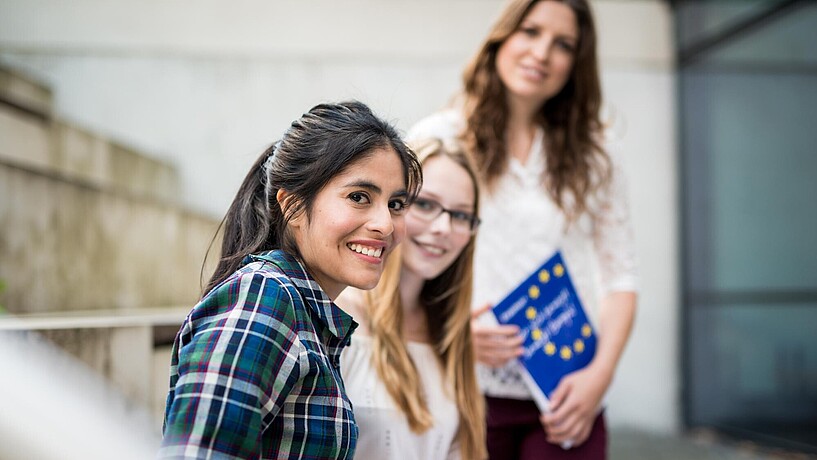More money for students
At HAW Hamburg, Marina Leß, the Erasmus coordinator in the International Office, is responsible for project steering and the overall management of Erasmus+. 'Erasmus is the most popular and most attractive exchange programme at HAW Hamburg. Each year approximately 180 HAW Hamburg students complete a study stay or internship abroad through the programme,' she says. A major advantage of Erasmus is, for example, that a study place at a European partner university comes with financial support for at least two months.
This year the amount of financial support provided has been increased: students can receive up to €600 per month depending on which country they travel to. 'A lot has changed to the benefit of students. In the current programme, students who have been under-represented to date in terms of travel abroad – such as students with a disability, working students, or first-generation students – are being given more support,' says Leß. These students receive additional monthly funding of €250, a so-called 'social top-up', alongside the regular funding.
Getting valuable experience abroad with Erasmus+
'Erasmus+ symbolises a vibrant, young and dynamic Europe. It builds bridges between people, and thus also between the countries of the European Union. A million students from Germany have benefited from Erasmus to gain valuable experience in another country, and they have frequently established lifelong networks,' says Prof. Dr. Joybrato Mukherjee, president of the German Academic Exchange Service (DAAD). The programme's thirty-fifth anniversary is being marked with a commemorative €2 coin, which has been issued throughout Europe with a circulation of almost 40 million coins. The coin shows Erasmus of Rotterdam, the programme's namesake, and a series of connections symbolising diverse intellectual and interpersonal exchanges.
New emphasis for the 2021–2027 programme generation
According to Stephan Geifes, director of the National Agency for Erasmus+ at DAAD, the programme has evolved constantly. The European mobility programmes for university students, trainees, school pupils and young people are today united under the Erasmus+ umbrella. The current Erasmus programme (2021–2027) has an overall budget of more than €28 billion to support the EU Commission’s educational policy objectives, thereby increasing the attractiveness of Europe as a location for academic study and research. The new programme period places greater emphasis on promoting equal opportunities, inclusion, diversity, digital transformation and sustainability.
Additional information:
Study in Europe with Erasmus+
Text: Emma Körting

